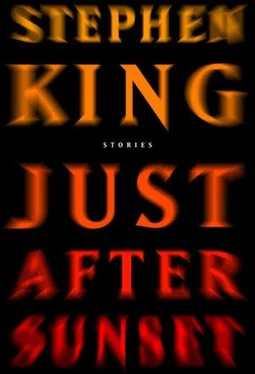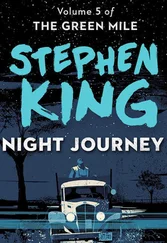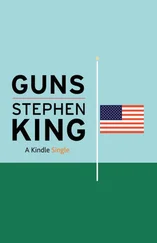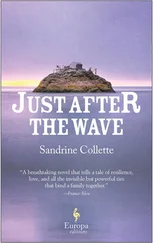Stephen King - Just After Sunset
Здесь есть возможность читать онлайн «Stephen King - Just After Sunset» весь текст электронной книги совершенно бесплатно (целиком полную версию без сокращений). В некоторых случаях можно слушать аудио, скачать через торрент в формате fb2 и присутствует краткое содержание. Город: New York, Год выпуска: 2009, ISBN: 2009, Издательство: SCRIBNER, Жанр: Ужасы и Мистика, на английском языке. Описание произведения, (предисловие) а так же отзывы посетителей доступны на портале библиотеки ЛибКат.
- Название:Just After Sunset
- Автор:
- Издательство:SCRIBNER
- Жанр:
- Год:2009
- Город:New York
- ISBN:978-1-4391-2548-9
- Рейтинг книги:5 / 5. Голосов: 1
-
Избранное:Добавить в избранное
- Отзывы:
-
Ваша оценка:
- 100
- 1
- 2
- 3
- 4
- 5
Just After Sunset: краткое содержание, описание и аннотация
Предлагаем к чтению аннотацию, описание, краткое содержание или предисловие (зависит от того, что написал сам автор книги «Just After Sunset»). Если вы не нашли необходимую информацию о книге — напишите в комментариях, мы постараемся отыскать её.
Just After Sunset — читать онлайн бесплатно полную книгу (весь текст) целиком
Ниже представлен текст книги, разбитый по страницам. Система сохранения места последней прочитанной страницы, позволяет с удобством читать онлайн бесплатно книгу «Just After Sunset», без необходимости каждый раз заново искать на чём Вы остановились. Поставьте закладку, и сможете в любой момент перейти на страницу, на которой закончили чтение.
Интервал:
Закладка:
Then the alarm did go off, not a bray but a distant purring sound that was almost melodic.
The truck was closing in. He didn’t need to turn his head to see it (nor does one ever want to turn and see the frightful fiend that close behind him treads, Sifkitz supposed later that night, lying awake in his bed and still wrapped in the cold-yet-hot sensation of disaster avoided by mere inches or seconds). He could see the shadow, growing longer and darker.
Hurry up, please, gentlemen, it’s time, he thought, and squeezed his eyes closed. He could still hear the alarm, but it was still no more than that almost soothing purr, it was certainly no louder; what was louder was the engine, the one inside Freddy’s truck. It was almost on him, and suppose they didn’t want to waste so much as a New York minute in conversation? Suppose the one currently behind the wheel just mashed the pedal to the metal and ran him down? Turned him into roadkill?
He didn’t bother to open his eyes, didn’t waste time confirming that it was still the deserted road instead of the basement alcove. Instead he squeezed them even more tightly shut, focused all his attention on the sound of the alarm, and this time turned the polite voice of the barman into an impatient bellow:
HURRY UP PLEASE GENTLEMEN IT’S TIME!
And suddenly, thankfully, it was the sound of the engine that was fading and the sound of the Brookstone alarm that was swelling, taking on its old familiar rough get-up-get-up-get-up bray. And this time when he opened his eyes, he saw the projection of the road instead of the road itself.
But now the sky was black, its organic redness hidden by nightfall. The road was brilliantly lit, the shadow of the bike — a Raleigh — a clear black on the leaf-littered hardpack. He could tell himself he had dismounted the stationary bike and painted those changes while in his nightly trance, but he knew better, and not only because there was no paint on his hands.
This is my last chance, he thought. My last chance to avoid the ending everyone expects in stories like this.
But he was simply too tired, too shaky, to take care of the stationary bike now. He would take care of it tomorrow. Tomorrow morning, in fact, first thing. Right now all he wanted was to get out of this awful place where reality had worn so thin. And with that firmly in mind, Sifkitz staggered to the Pomona crate beside the doorway (rubber-legged, covered with a thin slime of sweat — the smelly kind that comes from fear rather than exertion) and shut the alarm off. Then he went upstairs and lay down on his bed. Some very long time later, sleep came.
The next morning he went down the cellar stairs, eschewing the elevator and walking firmly, with his head up and his lips pressed tightly together, A Man On A Mission. He went directly to the stationary bike, ignoring the alarm clock on the crate, dropped to one knee, picked up the screwdriver. He slipped it once more into the slot of a screw, one of the four that held the left-hand pedal…
…and the next thing he knew, he was speeding giddily along the road again, with the headlights brightening around him until he felt like a man on a stage that’s dark save for one single spotlight. The truck’s engine was too loud (something wrong with the muffler or the exhaust system), and it was out of tune, as well. He doubted if old Freddy had bothered with the last maintenance go-round. No, not with house-payments to make, groceries to buy, the kiddies still needing braces, and no weekly paycheck coming in.
He thought: I had my chance. I had my chance last night and I didn’t take it.
He thought: Why did I do this? Why, when I knew better?
He thought: Because they made me, somehow. They made me.
He thought: They’re going to run me down and I’ll die in the woods.
But the truck did not run him down. It hurtled past him on the right instead, left-side wheels rumbling in the leaf-choked ditch, and then it swung across the road in front of him, blocking the way.
Panicked, Sifkitz forgot the first thing his father had taught him when he brought the three-speed home: When you stop, Richie, reverse the pedals. Brake the bike’s rear wheel at the same time you squeeze the handbrake that controls the front wheel. Otherwise —
This was otherwise. In his panic he turned both hands into fists, squeezing the handbrake on the left, locking the front wheel. The bike bucked him off and sent him flying at the truck with LIPID COMPANY printed on the driver’s-side door. He threw his hands out and they struck the top of the truck’s bed hard enough to numb them. Then he collapsed in a heap, wondering how many bones were broken.
The doors opened above him and he heard the crackle of leaves as men in workboots got out. He didn’t look up. He waited for them to grab him and make him get up, but no one did. The smell of the leaves was like old dry cinnamon. The footsteps passed him on either side, and then the crackle abruptly stopped.
Sifkitz sat up and looked at his hands. The palm of the right one was bleeding and the wrist of the left one was already swelling, but he didn’t think it was broken. He looked around and the first thing he saw — red in the glow of the Dodge’s taillights — was his Raleigh. It had been beautiful when his Dad brought it home from the bike-shop, but it wasn’t beautiful any longer. The front wheel was warped out of true, and the rear tire had come partly off the rim. For the first time he felt something other than fear. This new emotion was anger.
He got shakily to his feet. Beyond the Raleigh, back the way he’d come, was a hole in reality. It was strangely organic, as if he were looking through the hole at the end of some duct in his own body. The edges wavered and bulged and flexed. Beyond it, three men were standing around the stationary bike in the basement alcove, standing in postures he recognized from every work-crew he’d ever seen in his life. These were men with a job to do. They were deciding how to do it.
And suddenly he knew why he’d named them as he had. It was really idiotically simple. The one in the Lipid cap, Berkowitz, was David Berkowitz, the so-called Son of Sam and a New York Post staple the year Sifkitz had come to Manhattan. Freddy was Freddy Albemarle, this kid he’d known in high school — they’d been in a band together, and had become friends for a simple enough reason: they both hated school. And Whelan? An artist he’d met at a conference somewhere. Michael Whelan? Mitchell Whelan? Sifkitz couldn’t quite remember, but he knew the guy specialized in fantasy art, dragons and such. They had spent a night in the hotel bar, telling stories about the comic-horrible world of movie-poster art.
Then there was Carlos, who’d committed suicide in his garage. Why, he had been a version of Carlos Delgado, also known as the Big Cat. For years Sifkitz had followed the fortunes of the Toronto Blue Jays, simply because he didn’t want to be like every other American League baseball fan in New York and root for the Yankees. The Cat had been one of Toronto’s very few stars.
“I made you all,” he said in a voice that was little more than a croak. “I created you out of memories and spare parts.” Of course he had. Nor had it been for the first time. The boys on the Norman Rockwell pitcher’s mound in the Fritos ad, for instance — the ad agency had, at his request, provided him with photographs of four boys of the correct age, and Sifkitz had simply painted them in. Their mothers had signed the necessary waivers; it had been business as usual.
If they heard him speak, Berkowitz, Freddy, and Whelan gave no sign. They spoke a few words among themselves that Sifkitz could hear but not make out; they seemed to come from a great distance. Whatever they were, they got Whelan moving out of the alcove while Berkowitz knelt by the stationary bike, just as Sifkitz himself had done. Berkowitz picked up the screwdriver and in no time at all the left-hand pedal dropped off onto the concrete — clunk. Sifkitz, still on the deserted road, watched through the queer organic hole as Berkowitz handed the screwdriver to Freddy Albemarle — who, with Richard Sifkitz, had played lousy trumpet in the equally lousy high school band. They had played a hell of a lot better when they were rocking. Somewhere in the Canadian woods an owl hooted, the sound inexpressibly lonely. Freddy went to work unscrewing the other pedal. Whelan, meanwhile, returned with the adjustable wrench in his hand. Sifkitz felt a pang at the sight of it.
Читать дальшеИнтервал:
Закладка:
Похожие книги на «Just After Sunset»
Представляем Вашему вниманию похожие книги на «Just After Sunset» списком для выбора. Мы отобрали схожую по названию и смыслу литературу в надежде предоставить читателям больше вариантов отыскать новые, интересные, ещё непрочитанные произведения.
Обсуждение, отзывы о книге «Just After Sunset» и просто собственные мнения читателей. Оставьте ваши комментарии, напишите, что Вы думаете о произведении, его смысле или главных героях. Укажите что конкретно понравилось, а что нет, и почему Вы так считаете.












